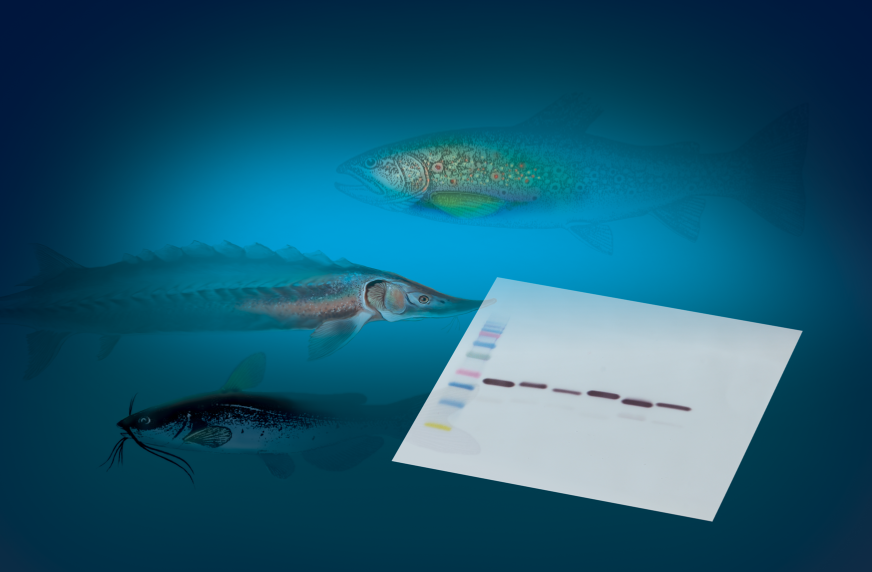
Overview
The Comparative Proteomics Kit II: Western Blot Module is the second part of a two-part laboratory. In the first part of this laboratory (Comparative Proteomics Kit I: Protein Profiler Module), students use sodium dodecyl sulfate polyacrylamide gel electrophoresis (SDS-PAGE) to generate protein profiles and to visualize the unique array of proteins comprising muscle tissues from different fish. In this second part of the laboratory, students apply western blotting techniques to their polyacrylamide gel results to specifically identify myosin light chain from the hundreds of proteins that comprise the muscle cell extracts of closely and distantly related species of fish.
Features and Benefits
- Applies immunology
- Teaches students to use antibodies as detection tools
- Serves as a laboratory extension for the Comparative Proteomics I Kit: Protein Profiler Module
How It Works
The protocol involves transferring the protein bands from polyacrylamide gels to a membrane and then using an anti-myosin light chain antibody to precisely identify which protein in each species' profile is myosin light chain. Using Internet-based bioinformatics databases, students can compare their experimentally determined results to actual protein sequence data derived from DNA and RNA sequences and consider whether variations in myosin among species are due to "genetic" or "epigenetic" factors.
More Information
- Four-session laboratory activity, 45 min per session
- Provides sufficient materials for eight student workstations, up to four students per workstation
Specifications
(2–4 students per workstation)
Ordering
items
Use the filters below to refine results!



Refills












